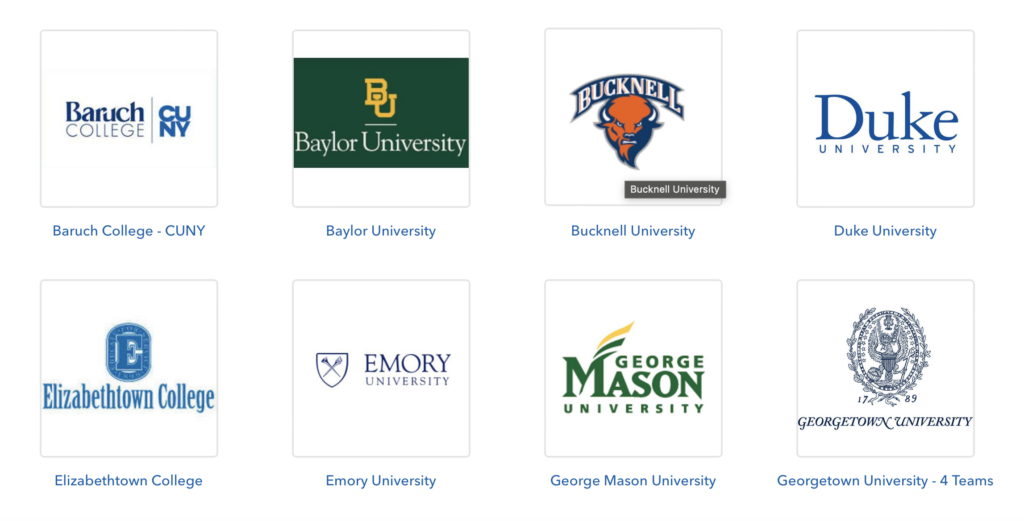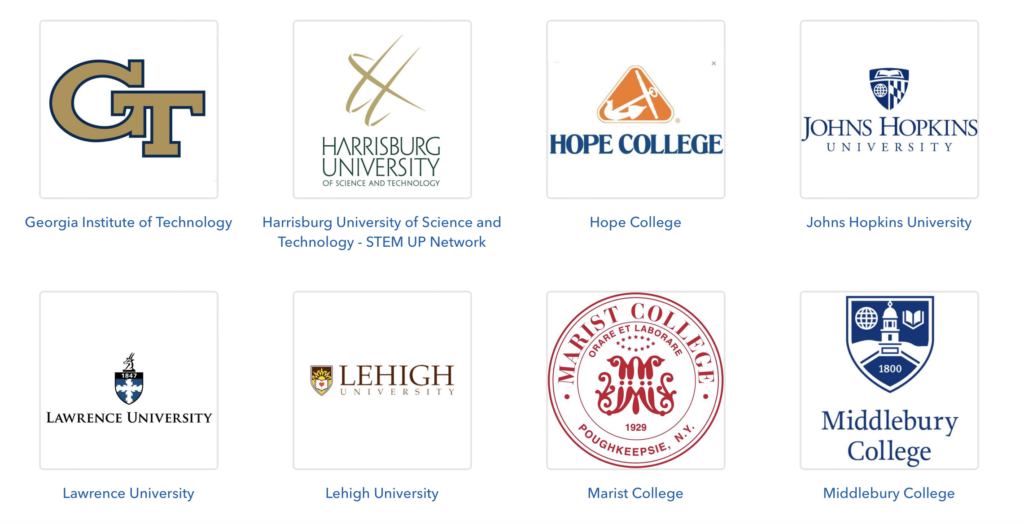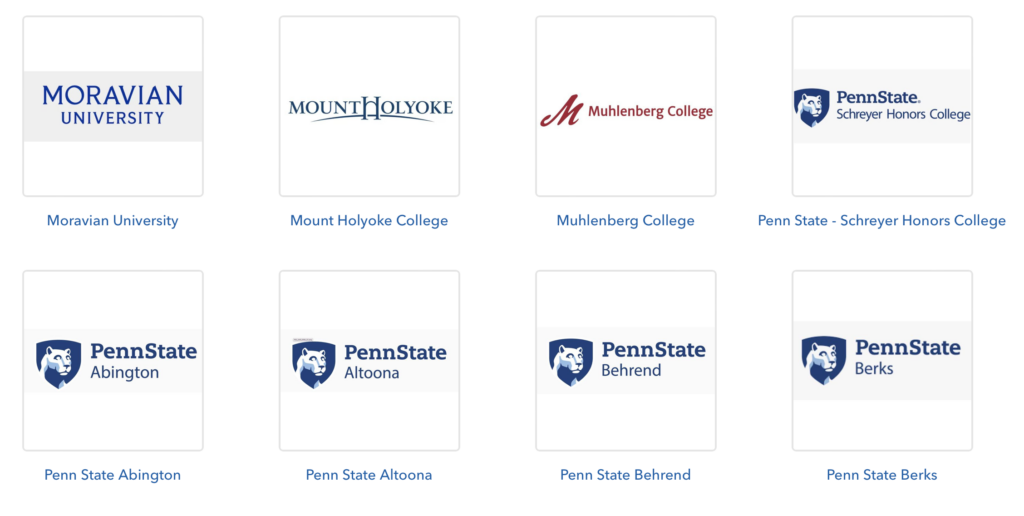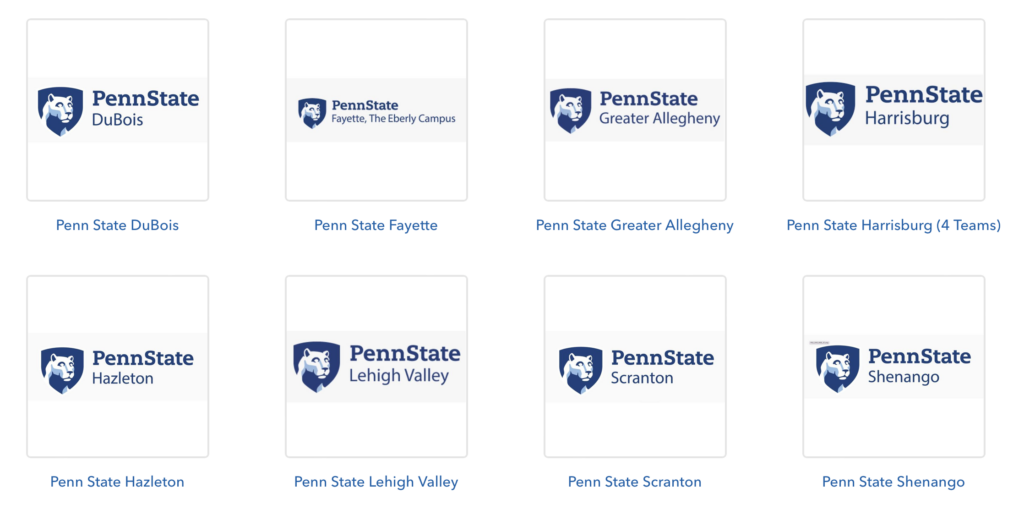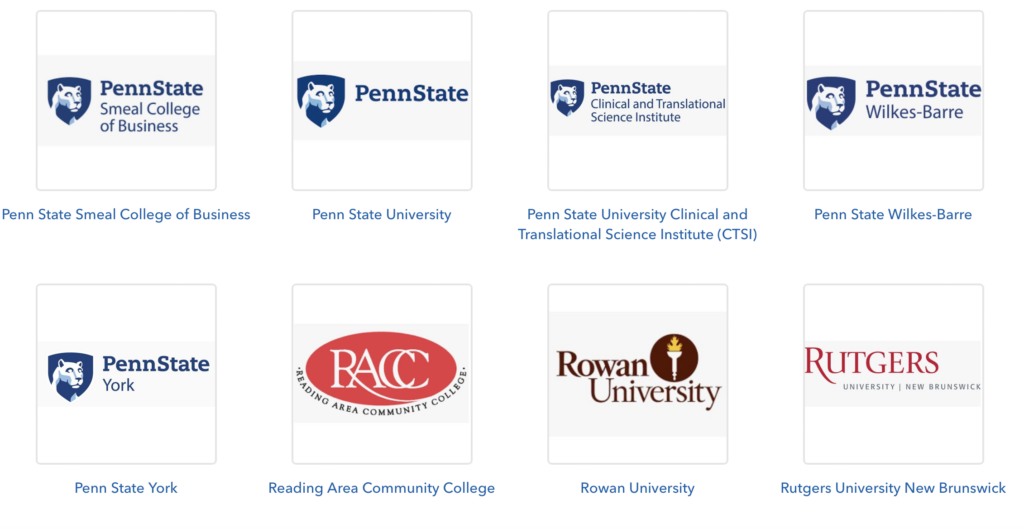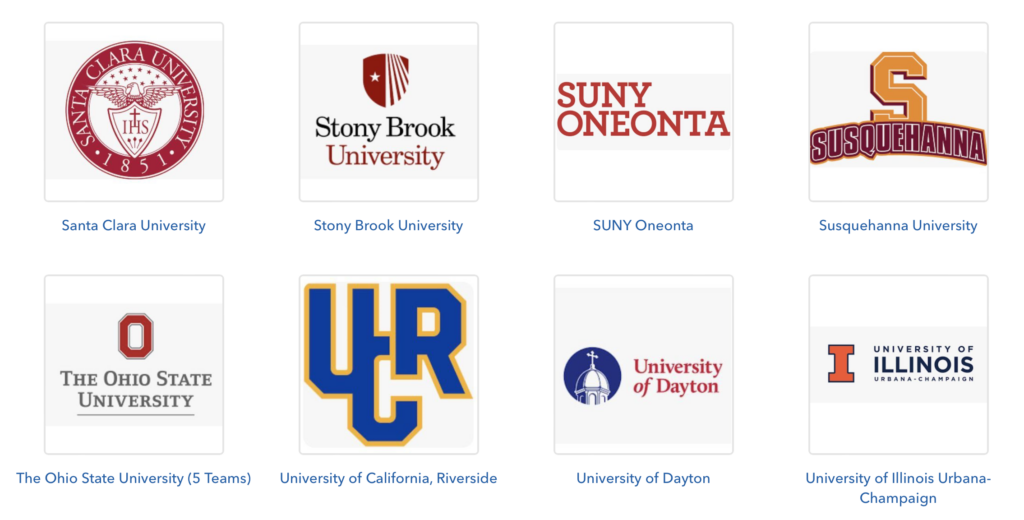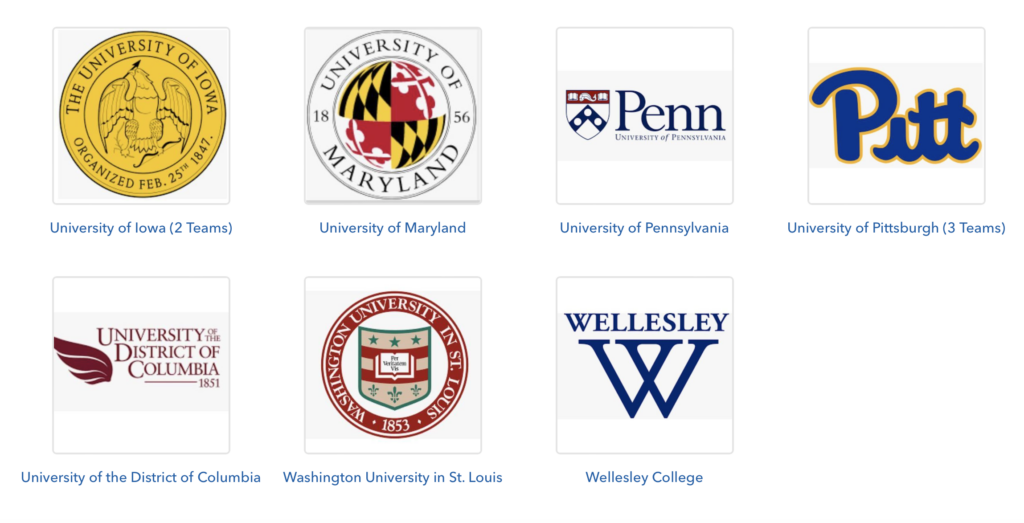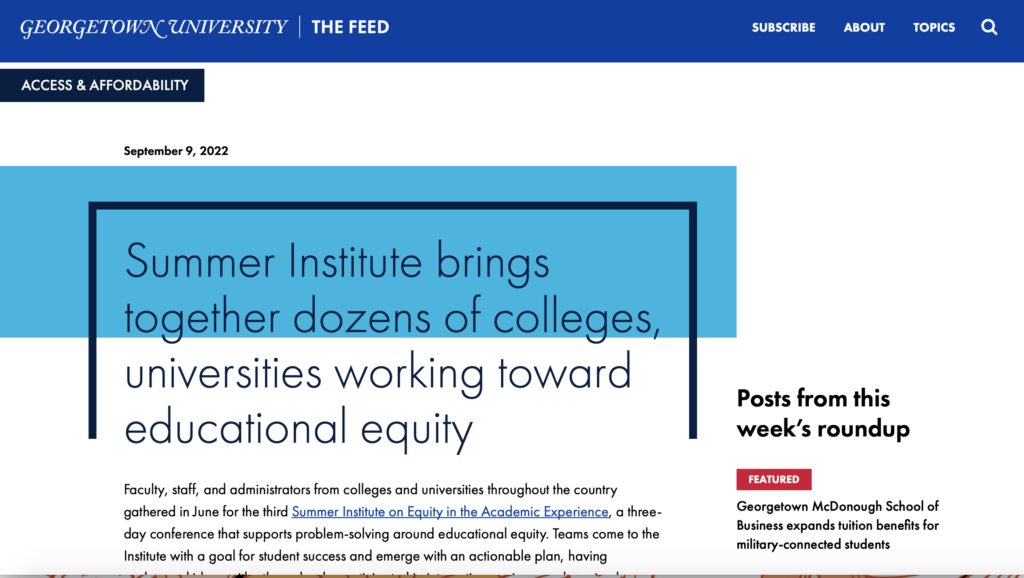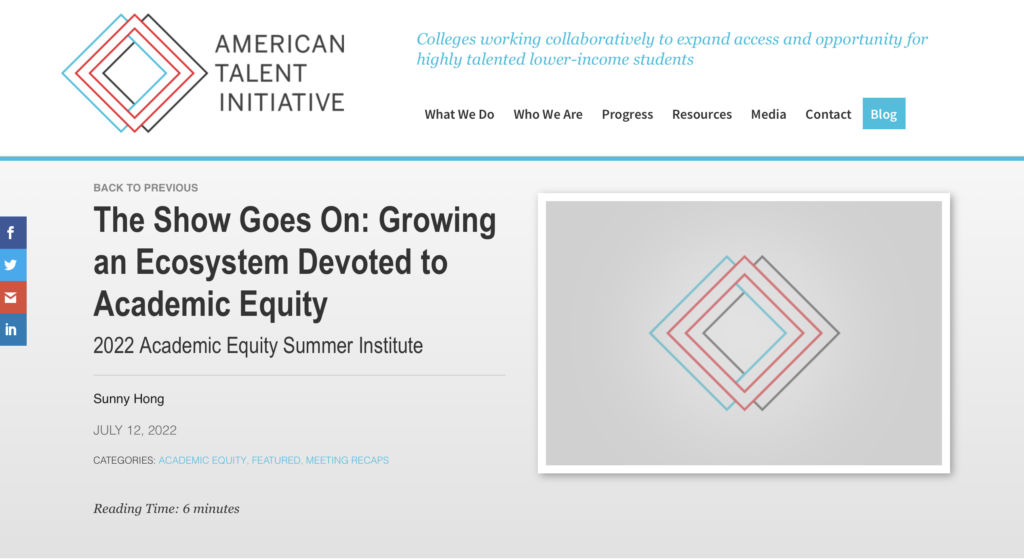2023 Recordings & Resources
The 2023 Summer Institute on Equity in the Academic Experience was hosted by the American Talent Initiative and Georgetown University who shared responsibility for the planning and programming.
We are pleased to acknowledge the meaningful partnership of Penn State University (especially Penn State Harrisburg for serving as a leadership site) and the ATI Community of Practice advisory group with representation from Muhlenberg College, The Ohio State, and University of Pittsburgh.
Daily Provocations
Design for Equity or Perpetuate Inequity
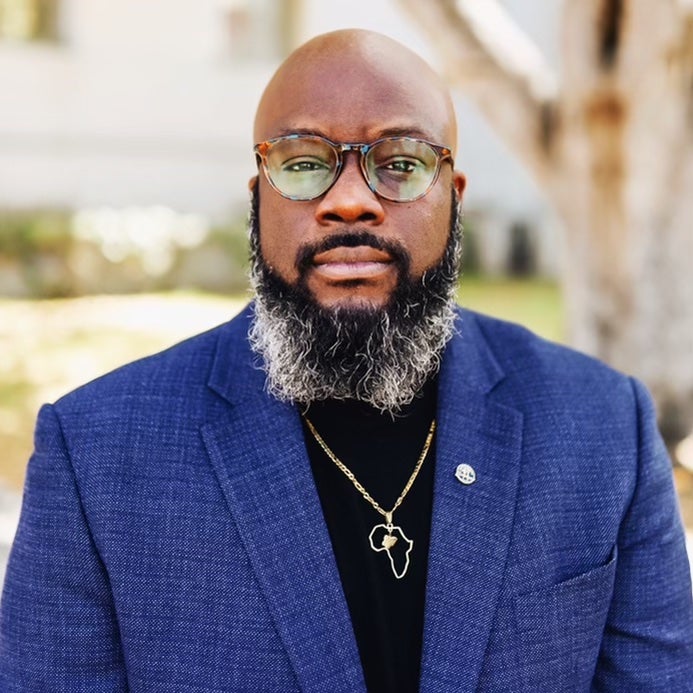
We Have It All Wrong: Human Relations At The Heart of Scaling Strategies
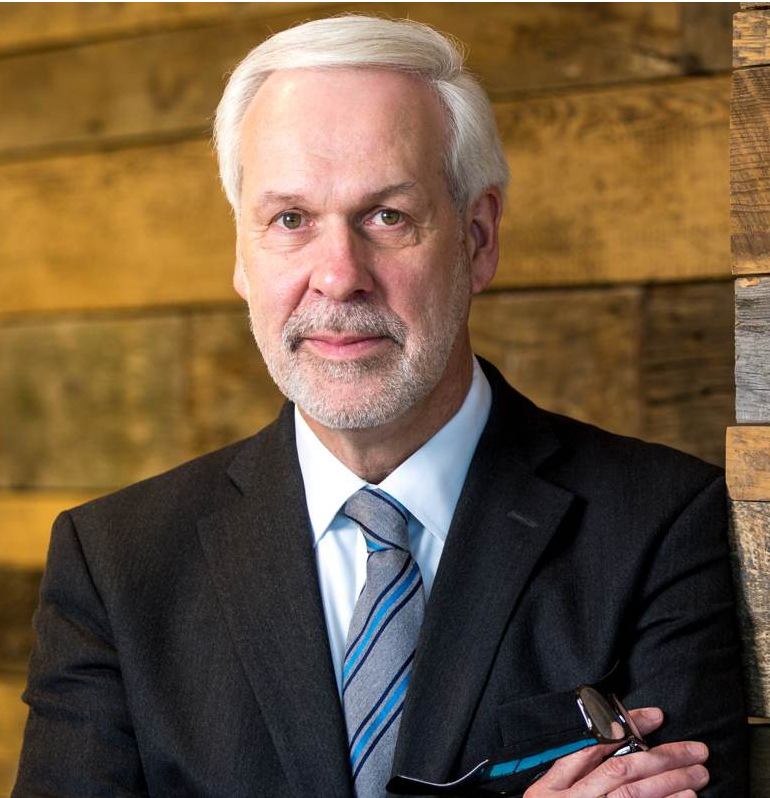
Student Success Redefined
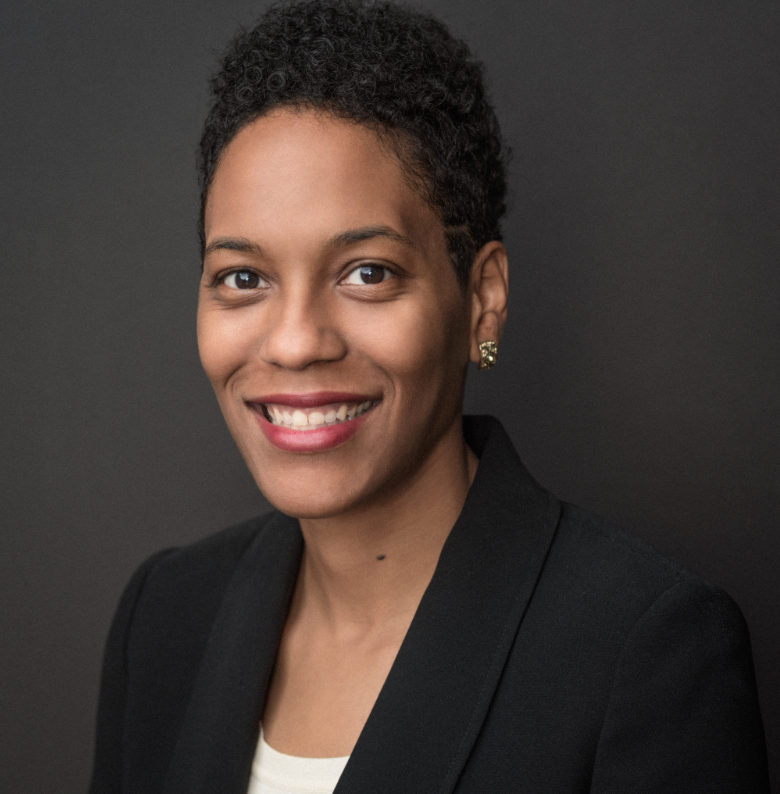
2023 Interactive Sessions:
Day 1: Getting going
Daily Welcome
Video link: https://www.youtube.com/watch?v=29YEu8xsfwk
(1.1) Navigating DEI Resistance
(1.2) Soft v Radical Reform toward Educational Equity
(1.3) Learning at Iowa: A Campus-Wide Framework to Increase Students’ Academic Success
Video link: https://www.youtube.com/watch?v=As-p8nDIMU0
Video link: https://youtu.be/uBajLY4N1jc
Video link: https://youtu.be/zlR4wP3jMpE
(2.1) The Early College Model: Expanding access by combining high school and college
(2.2) Student Success Assessment 101
(2.3) Advancing Equity Agendas in Today’s Political Climate
Video link: https://youtu.be/-VZg2KUOxV0
Video link: https://youtu.be/aLvtmbK1kuw
Video link: https://youtu.be/XcJZ0hh87Cg
Day 2: Digging in
Daily Welcome
Video link: https://www.youtube.com/watch?v=-nNZL-x4CWw
(3.1) De-siloing Equity Work Across the Institution
(3.2) Leading from the Middle: Designing and Implementing Innovative Strategies Below the Fold
(3.3) Professional Learning Design for High Impact Equity Initiatives
Video link: https://youtu.be/gTEnuXf1bGE
Video link: https://youtu.be/5wqFHO3QLB4
Video link: https://youtu.be/GBUdVXa9arQ
(4.1) The Path Forward for Diversity in Higher Education
(4.2) Building College-to-Careers Pathways that Support All Students
(4.3) Considering the AI impacts on Equity in Education
Video link: https://youtu.be/9ZCmSm9triQ
Video link: https://youtu.be/ONghhjzQmII
Video link: https://youtu.be/I796NbIwobk
Day 3: Sharing Out
Daily Welcome
Video link: https://www.youtube.com/watch?v=5ie9GVTnqyU
(5.1) Mattering, Equity, and Student Success
(5.2) Working Towards Bias-Free and Inclusive Curricula: Using a Bias Checklist in Health Professions Education
(5.3) The Personal & Professional Cost of Doing Equity Work
Video link: https://youtu.be/ZKrrXVhbf4g
Video link: https://youtu.be/-VI6EUQx6DA
Video link: https://youtu.be/0WXHxFLDQ-o
2023 Team Project Highlights

“Fostering Belonging”
The college team formed an interdisciplinary group to develop strategies for fostering a deeper sense of belonging among and increasing the ultimate success of low-income college students. Recently, Marist College has seen an increase in the percent of Pell-eligible students and financial support dedicated to their success. However, some subgroups of low-income students who have received financial and academic support report low rates of belonging on the college campus and low-income students more generally have lower first-year retention and 6-yr graduation rates than their more affluent peers. With the proliferation of financial support, it is necessary to develop coordinated and focused academic and student affairs-based supports. The college team explored strategies such as peer mentoring, increasing participation in high impact practices, comprehensive advising, and faculty and staff development with the goal of increasing low-income students’ sense of belonging and retention and graduation rates.
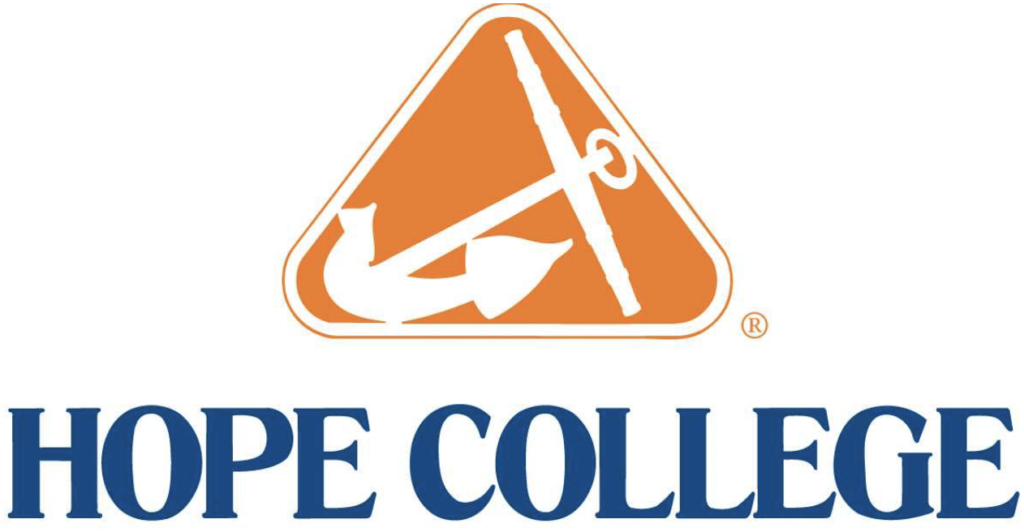
“Mentorship / Social Capital”
Group 1 / Mentorship: Build a strong foundation for consistent, inclusive, outcomes-oriented mentorship programs at Hope. This is not about building more mentorship programs; it is about strengthening (and possibly streamlining) the ones that already exist, with a focus on high-impact practices.
Group 2 / Social Capital: Expand students’ cultural and social capital in the Hope College experience. The college team thought through ways to help strengthen Hope students’ network of relationships that provide support, information and opportunity.
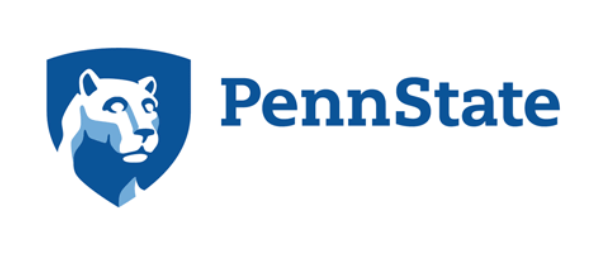
“24 Teams Tackling Equity Issues”
Diverse teams from across Penn State participated in this year’s Equity Summer Institute. Penn State fielded 24 teams from 16 Penn State campuses and units. Read more here!
2023 Participating Institutions
